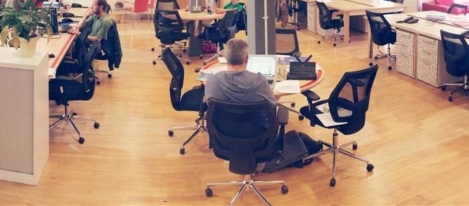November 1, 2015
Firms use workplace improvements to invest in their human capital 0
 A survey by CoreNet Global and Cushman & Wakefield claims that 88 percent of EMEA corporate real estate professionals are actively investing in workplace improvements, and 95 percent are addressing workplace technology as part of those upgrades. The results emphasise the importance of human capital, suggesting that factors such as office environment, flexible working and company culture continue to be seen as critical to attracting and retaining talent. The global Talent Agenda Survey, completed by 250 respondents, addresses how occupiers are managing their talent pool against an ever-changing and unpredictable business environment. The survey focused on categories such as the cost of human capital and its value; the key challenges relating to talent access, assembly and retention and the critical role that real estate plays in workplace innovation, efficiency and talent retention.
A survey by CoreNet Global and Cushman & Wakefield claims that 88 percent of EMEA corporate real estate professionals are actively investing in workplace improvements, and 95 percent are addressing workplace technology as part of those upgrades. The results emphasise the importance of human capital, suggesting that factors such as office environment, flexible working and company culture continue to be seen as critical to attracting and retaining talent. The global Talent Agenda Survey, completed by 250 respondents, addresses how occupiers are managing their talent pool against an ever-changing and unpredictable business environment. The survey focused on categories such as the cost of human capital and its value; the key challenges relating to talent access, assembly and retention and the critical role that real estate plays in workplace innovation, efficiency and talent retention.

















 This week the UK’s Health Secretary found himself at the centre of a storm because of
This week the UK’s Health Secretary found himself at the centre of a storm because of 


 Companies are rethinking the tools they use to keep employees engaged and loyal – especially at a time when flexibility and choice are increasingly important to an workforce that craves mobility and choice. A newly released survey from
Companies are rethinking the tools they use to keep employees engaged and loyal – especially at a time when flexibility and choice are increasingly important to an workforce that craves mobility and choice. A newly released survey from 










October 12, 2015
How workplace design is more closely reflecting how we actually work 0
by Adrian Campbell • Comment, Flexible working, Workplace design
(more…)